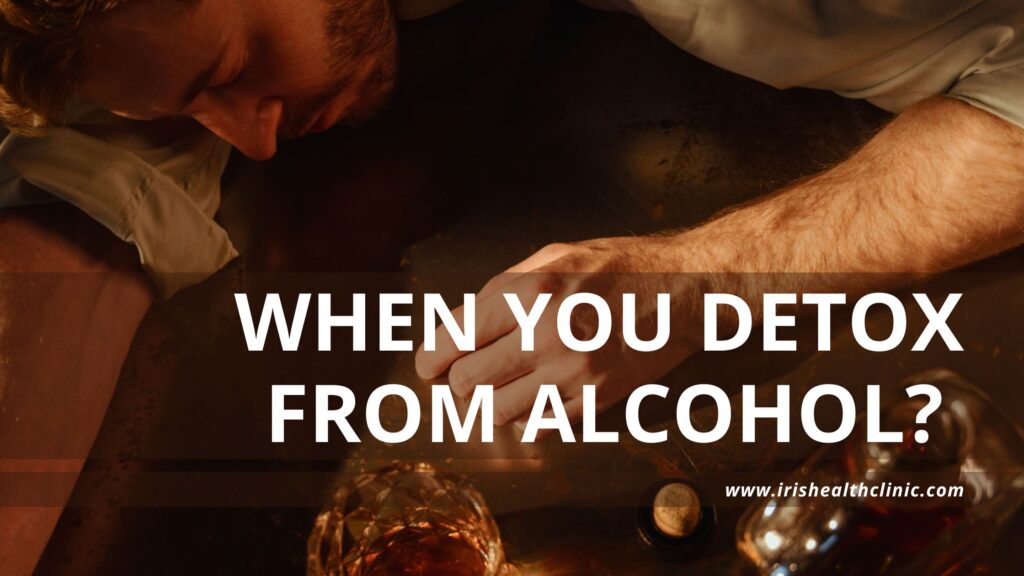One of the most important initial steps on the road to alcohol addiction recovery is alcohol detoxification. It means:
- emptying your system of alcohol
- and dealing with the mental and physical difficulties that come up as your body gets used to operating without it.
So, do you want to make a difference in your life? Seek professional assistance through alcohol addiction residential treatment for a safe and successful detox.
In this blog post, we have explored the process of alcohol detoxification, the function of medically assisted alcohol treatment, and the importance of seeking expert assistance.
What is Alcohol Detoxification?
Alcohol detoxification, often known as alcohol detox, is the process of removing alcohol from your body after prolonged consumption. It’s not only about getting rid of the drug; it’s also about controlling the withdrawal symptoms.
Detox lays the groundwork for a successful recovery and is the first step in beating addiction.
Your body changes a lot during detoxification. For those who have a long history of heavy drinking, the process can be emotionally and physically taxing. An alcohol addiction treatment program provides the necessary medical and therapeutic support to help you navigate withdrawal safely. These programs address acute withdrawal symptoms while also managing any underlying health concerns, ensuring a more stable recovery process.
Signs That You May Need Alcohol Detox
Here are some typical indicators that detoxification may be required if you or a loved one exhibits symptoms of alcohol dependency:
- Feeling anxious, sweaty, or experiencing other withdrawal symptoms after abstaining from alcohol.
- Increasing tolerance means consuming more alcohol to get the same result.
- Unable to quit drinking in spite of attempts.
- Physical dependence, in which alcohol is necessary for bodily functions.
Early detection of these symptoms may prevent serious consequences. It is safer and more comfortable to detox under medical supervision.
The Phases of Alcohol Detox
1. The Initial Phase: Acute Withdrawal
After quitting alcohol, the first 24 to 72 hours are usually the most difficult. This stage can be identified by acute withdrawal symptoms, which include:
- Nausea and vomiting
- Tremors and sweating
- Insomnia and irritability
- Increased heart rate and blood pressure
For individuals with severe dependency, more serious symptoms like seizures or delirium tremens (DTs) may occur. This is where medical assisted treatment for alcohol becomes crucial. Medications such as benzodiazepines can help manage severe symptoms and reduce the risk of life-threatening complications.
2. Stabilization Phase
After the initial withdrawal symptoms subside, the stabilization phase begins. Here, the focus is on restoring physical and mental balance. You may still experience:
- Fatigue
- Mood swings
- Cravings for alcohol
At this stage, residential treatment ensures 24/7 care, addressing not only physical recovery but also emotional and psychological needs.
3. Early Recovery Phase
The final phase of detox transitions into early recovery. This is when the body begins to adjust to functioning without alcohol entirely. Therapy and counseling, often integrated into alcohol addiction residential treatment, play a vital role in building coping strategies and preventing relapse.
What Does a Medical Assisted Treatment for Alcohol Detox Do for You
Medical assisted treatment for alcohol is a cornerstone of modern detox programs. MAT offers a comprehensive approach to treatment by combining FDA-approved drugs with behavioral therapies and counseling. Here’s how MAT supports alcohol detox:
- Reduces Withdrawal Symptoms: Medications like Naltrexone or Acamprosate ease the discomfort of withdrawal, making the process more manageable.
- Prevents Cravings: These medications help suppress cravings, reducing the risk of relapse during the vulnerable detox phase.
- Improves Long-Term Outcomes: By stabilizing the body and mind, MAT lays a strong foundation for continued recovery.
When incorporated into an alcohol addiction residential treatment program, MAT provides both immediate relief and lasting benefits.
Risks of Detoxing Without Professional Help
Attempting to detox from alcohol without professional supervision can be dangerous and, in some cases, life-threatening. Risks include:
- Severe Withdrawal Symptoms: Symptoms like seizures and DTs require immediate medical intervention.
- Relapse: The discomfort of withdrawal often leads individuals to return to drinking.
- Complications: Without medical monitoring, pre-existing health conditions can worsen.
Benefits of Alcohol Addiction Residential Treatment
Choosing an alcohol addiction residential treatment program for detox has numerous advantages:
- 24/7 Supervision
- Structured Environment
- Comprehensive Support
- Tailored Care Plans
Life After Detox: The Recovery Journey
Detox is just the beginning. After completing alcohol detoxification, the next steps involve:
- Ongoing Therapy: Individual, group, or family counseling helps address the root causes of addiction.
- Outpatient Programs: Flexible options for continued care while reintegrating into daily life.
- Support Groups: Joining groups like Alcoholics Anonymous (AA) offers peer support and accountability.
Conclusion: Take the First Step Today
Alcohol detox is a challenging but essential step in the recovery process. With the support of alcohol addiction residential treatment and medical assisted treatment for alcohol, you can detox safely and set the foundation for lasting sobriety. At Iris Health Clinic, our dedicated team is here to guide you through every stage of your recovery journey.
Contact us today to learn more about our comprehensive detox programs and take the first step toward a healthier future.

